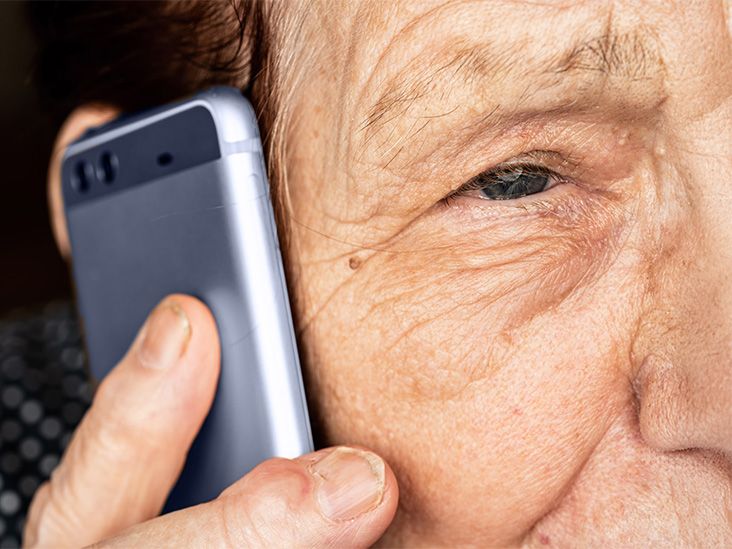At first, I thought it was nothing just another "Medicare update" call while I was stirring soup. Then the caller asked for my Medicare numberand that's the red flag. My stomach dropped. If you've ever felt that little jolt of doubt, you're not alone. Scammers are skilled at sounding official, but you can be even better at spotting them. Let's talk about the fastest ways to identify Medicare scam calls, what to say (and not say), and how to shut them downquickly and confidently.
Below, you'll find clear checklists, simple scripts, and the right places to report fraud. No fluff. Just what works to avoid Medicare scams and keep your benefits, identity, and peace of mind safe. Ready?
Fast checklist
Think of this as your pocket guide. If a call ticks even one of these boxes, treat it as suspicious. Breathe, keep it short, and hang up.
Immediate red flags to listen for
Scammers rely on pressure and confusion. Here are the tells:
Urgent demands ("Your Medicare will be canceled today unless you verify!")
Threats or scare tactics ("We've detected fraudgive me your number now!")
Gift cards or wire transfers ("Pay a small fee with a gift card to activate benefits")
"New chip card" or "plastic upgrade" pitches requiring your Medicare or Social Security number
Requests to "confirm" your Medicare, SSN, banking, or credit card info
Caller ID spoofing (the number looks like Medicare, your plan, or a local clinic)
What a real Medicare or plan call sounds like
True story: real calls are boringin a good way. They won't ask for sensitive info out of the blue, and they don't threaten you. Here's what's legit:
Medicare or your plan may call if you asked for a call back, are in an ongoing case, or during specific outreach you previously agreed to.
They won't pressure you to make a decision on the spot.
They will not ask for gift cards, full SSN, or bank info to "keep your benefits."
If verification is needed, they'll offer secure alternatives or ask you to call the official number on your card.
According to official guidance on consumer protection and healthcare outreach, agencies and plans must follow strict privacy and marketing rules; unexpected calls demanding sensitive info are not normal. If in doubt, hang up and call the number on your Medicare card or 1800MEDICARE to verify.
Quick script to end the call safely
Keep it short. You don't owe anyone your time or details.
"I don't share information over the phone. I'll call 1800MEDICARE to verify." (Then hang up.)
"Remove my number from your list." (Hang up.)
"Send this in writing to the address Medicare has on file." (Hang up.)
Spotting legitimacy
Scammers are constantly updating their playbook. The good news? Their patterns are predictable once you know them.
Common Medicare scam call tactics in 2025
"New plastic chip card": There is no chip-based Medicare card requirement. If someone says you "must upgrade" by phone, it's a scam.
"COVID test kit renewal" or "free testing": Often used to harvest your Medicare number to bill Medicare for services you didn't need.
"Genetic testing" or "DNA screens": "It's free and covered!"then they ask for your Medicare number. High-risk for fraudulent billing.
"Medicare refund" or "benefits upgrade": They dangle money or better benefitsbut require personal info first.
"Part B equipment" (braces, devices, supplies): Unsolicited offers are a red flag. Medical equipment should go through your provider and plan.
Caller ID spoofing and how to verify a number
Caller ID can be faked, so don't trust what you see. If a call seems offeven from a familiar numberverify independently:
Hang up. Don't call back the number they gave you.
Use the number on the back of your Medicare card or call 1800MEDICARE.
If they claim to be your plan, call the member services number on your plan ID card.
If a clinic supposedly called, look up the clinic's official number yourself.
Verifying independently is your superpower. It removes the scammer's control and gives it back to you.
Legitimate enrollment and plan outreach rules
Licensed agents and plans have rules. Here's the gist:
They can't cold-call you without permission to contact (for many types of outreach). If you never requested info, be wary.
They must identify themselves clearlyno pretending to be "from Medicare" when they're a private plan or broker.
They can't collect your Medicare number just to "check options." Real enrollment happens through secure processes.
They must honor do-not-call requests.
These rules exist to protect you. If a caller ignores them, end the call.
Stop scams now
Let's walk through what to do during and after a suspicious call. Think of this as your calm, step-by-step playbook.
Do this during the call
Don't confirm or "verify" your Medicare number, SSN, date of birth, address, or banking details.
If they pressure you, repeat your script: "I'll verify by calling 1800MEDICARE."
If you're unsure, ask for their name and callback numberthen hang up. Don't use that number; verify independently.
Hang up if anything feels off. Trust your gut.
Block the number on your phone afterward.
Do this right after the call
Write down the date, time, and the number (even if spoofed). Note what they asked for and what they said.
Log in to your account at MyMedicare.gov and review claims and services. If you don't have an account, set one upit's worth it for monitoring.
If you gave personal information, consider a fraud alert or credit freeze with the credit bureaus, and watch for suspicious mail or account activity.
Report the scam properly
Reporting helps protect you and others. Share the details you notedtime, phone number, what they asked, and any names or scripts used.
1800MEDICARE (report suspected Medicare fraud or attempts)
Social Security Administration Office of the Inspector General if your SSN was involved
FTC ReportFraud for general scam reporting
Your state's Senior Medicare Patrol (SMP) for guidance and local help
Your plan's fraud hotline if the scam mentioned your insurer
If you're thinking, "Will anyone really act on my report?"yes. Patterns emerge from many reports, and enforcement follows those leads.
Protect your number
Think of your Medicare number like a house key. You don't hand it out to strangers, and you'd notice if it went missing.
Best practices to safeguard your Medicare number
Treat it like a credit card number: private and only shared when absolutely necessary.
Who can legitimately ask? Your doctor's office, hospital, pharmacy, or your plantypically in person or through secure channels.
Prefer secure portals (like MyMedicare.gov or your plan's official portal) instead of phone calls for sharing information.
Don't carry your Medicare card unless you need it that day; store it safely at home.
Monitoring for suspicious activity
Create your MyMedicare.gov account to prevent someone else from doing it in your name.
Review your Explanation of Benefits and claims regularly. Look for services or equipment you didn't receive.
Enable account alerts when available so you get notified about new claims or changes.
Identity theft steps if you shared information
Slip-ups happen. If you shared your Medicare or SSN:
Call 1800MEDICARE and explain what happened. Ask about getting a new Medicare card/number if needed.
Place a fraud alert with one credit bureau; they notify the others. For stronger protection, consider a credit freeze.
Watch medical records and claimsyour health identity matters too. Incorrect records can affect your care.
Real scripts to use
When your brain goes blank in the moment (totally normal), use these word-for-word lines.
If they claim to be "from Medicare"
"I don't share personal information over the phone. I'll call 1800MEDICARE to verify." (Hang up.)
"Please send this by mail to the address on file." (Hang up.)
If they pressure you with urgency or threats
"I don't make decisions under pressure. Put me on your do-not-call list." (Hang up.)
"I'm not comfortable with this call. I'll contact Medicare directly." (Hang up.)
If they offer free items or money
"I do not consent. Remove my number." (Hang up.)
"I don't accept unsolicited offers. If this is real, mail me the details." (Hang up.)
Why the firmness? Because "free" offers often turn into fraudulent billing in your name. Your number is valuableguard it like a treasure.
Special situations
Some of us are protecting not just ourselves, but parents, partners, or friends. Here are tailored tips for different needs.
Caregivers: protecting a parent or loved one
If you have power of attorney or are an authorized representative, keep copies handy for providers and plans.
Set up call screening and voicemail. Teach a simple rule: "If it feels rushed or asks for numbers, hang up and call me."
Create a fridge-friendly checklist: red flags, safe responses, and "call me first" reminders.
Do routine reviews together: once a month, look at claims and mail.
Limited English proficiency
Use interpreters or language assistance when calling Medicare or your plan. It's okay to request help.
Ask the caller to send information by mail in your preferred language.
Let unknown calls go to voicemail; return legitimate ones using official numbers you look up yourself.
Hearing, vision, or cognitive challenges
Enable captioned calls or call captions on smartphones.
Use call screening and block unknown numbers.
Request written confirmations for any legitimate changes.
Keep a simple, large-print card near the phone with your scripts and the number for 1800MEDICARE.
Call blocking tools
Let's lighten the load on your ears and your patience. Technology can filter out a lot of junk.
Carrier blocking and spam labels
Most carriers offer built-in spam protection you can enable in their apps or account settings. There may be a free tier and a paid tier with extras like better caller ID. Check your carrier's support page for setup steps and any costs.
Device-level and thirdparty blockers
iPhone: Settings > Phone > Silence Unknown Callers, or use "Filter Unknown Senders" for messages. You can also install reputable call-blocking apps.
Android: Enable Spam Protection in the Phone app settings; some models offer "Block unknown/private numbers."
Landlines: Consider hardware call filters that require callers to state their name or press a number before ringing through.
Number hygiene and privacy
Use a separate number (like a secondary mobile line) for forms and inquiries to protect your primary number.
Be cautious with online forms; avoid sharing your phone number when it isn't required.
Remove your data from people-search sites and data brokers when possibleless exposure means fewer scam calls.
Why caution helps
You're not being paranoidyou're being smart. And it pays off.
The risks of Medicare scam calls
Identity theft and fraudulent claims in your name
Potential delays or confusion in accessing legitimate benefits
Incorrect medical records due to fake claims (which can affect future care)
The benefits of verified help
Free, unbiased counseling from your local SHIP program during enrollment periods
Accurate comparisons and cost-savings from official tools
Peace of mind knowing the guidance is legitimate
Consumer protection agencies regularly warn that scams escalate during open enrollment and after big news events. Staying cautious is your best defense, and verifying through official channels is the fastest way to separate real help from noise. As highlighted in consumer advisories and government guidance on fraud prevention, quick reporting and independent verification significantly reduce harm and help stop repeat offenders.
Striking the balance
Here's the sweet spot: be open to real help, but keep control. You decide when to talk, who to call, and how to share information. If someone tries to rush you, that's your sign to slow down.
Quick resources
Let's get you set up for success. You can verify calls and protect your account by using official resources available to all beneficiaries. For detailed consumer guidance and to report scams, many people turn to federal consumer protection sites and official Medicare resources. For instance, recent advisories on reporting scams and identity theft guidance emphasize independent verification and prompt reporting through official channels, which you can find through trusted consumer protection agencies and Medicare's helpline. You can confirm rules and reporting steps through trusted consumer protection resources and the Medicare helpline, which provide clear, up-to-date instructions for stopping and reporting scams. In one consumer alert discussing phone impostor scams and spoofing, the recommendation is to hang up, verify independently, and reportsimple steps that consistently work.
When in doubt, call the number on your Medicare card or the official helpline, and consider the counselors available through SHIP for unbiased help comparing plans and spotting misleading marketing. These sources focus on your safety, clear options, and real benefitsno pressure, no tricks.
Checklists and logs
Here are simple templates you can copy into a notebook or keep by the phone. Sometimes the act of writing it down helps you feel in controland that matters.
One-page "Spot a Medicare scam call" checklist
Did they ask for your Medicare or SSN?
Did they push urgency or use threats?
Did they offer "free" items or refunds if you share info?
Did they ask for payment by gift card, wire, or crypto?
Did they refuse to let you call back using the number on your card?
If yes to any, end the call and verify independently.
Postcall incident log template
Date and time:
Caller number (and name they used):
What they asked for:
Exact phrases or threats used:
Action you took (hang up, blocked, reported):
Follow-up steps (claims review, alerts, new card requested):
Caregiver coordination sheet
Who answers unknown calls?
Who reviews claims monthly?
Where are the plan cards and login details stored?
Emergency steps: 1800MEDICARE, plan member services, caregiver contact.
Notes: permissions (authorized representative, POA), preferred language, accessibility needs.
Let me share a quick story. A friend's mom got a "Medicare refund" callvery official tone, precise language. She almost gave her number. But she paused, used the script, and hung up. She called the number on her Medicare card, andsurpriseno refund existed. That little pause saved her a world of trouble. It can save you, too.
If you'd like to go deeper on best practices to avoid Medicare scams and phone impostors, one helpful consumer advisory explains the telltale signs of spoofed calls and the value of independent verification. You can review that kind of guidance through official consumer protection outlets, such as this overview of reporting phone scams and impostors according to federal consumer reporting guidance, which emphasizes hanging up, verifying, and reporting.
And if something seems off with your claims or medical records, you're not being a bother by asking questions. You're being diligent. Doctors and plans would rather fix errors early than untangle bigger messes later.
Before we wrap, a quick pep talk: You don't need to be a tech wizard or a legal expert to stop Medicare scam calls. You just need a few simple habitsverify, hang up, document, report. Use the scripts. Use your checklist. And trust your instincts. They're better than you think.
What's your approach when an unknown number pops up? Do you let it ring through or pick up and set firm boundaries? If you've spotted new scam tactics, share your experienceyour story could help someone else avoid a costly mistake. And if you have questions, ask away. We're in this together.
Medicare scam calls are commonand designed to rush you. Slow things down, never share your Medicare or Social Security numbers by phone, and verify any claim by calling the official number on your card or the national helpline. If something feels off, hang up, document the call, and report it. Set up a MyMedicare.gov account, review your statements, and use call-blocking tools to cut down on noise. If you slipped and shared info, act quickly: monitor claims, place fraud alerts, and request help replacing compromised credentials. Staying cautious doesn't mean going it aloneuse official resources and trusted counselors so you get the benefits you've earned, without the risk.
FAQs
What are the most common red flags in a Medicare scam call?
Urgent threats, requests for your Medicare or Social Security number, demands for payment via gift cards or wire transfers, and offers of “free” upgrades or refunds are classic warning signs.
How can I verify if a call really came from Medicare?
Hang up, then call the number on the back of your Medicare card (1‑800‑MEDICARE) or log in to MyMedicare.gov. Never use the number the caller provides.
What should I say if I suspect a caller is a scammer?
Use a short script: “I don’t share personal information over the phone. I’ll call 1‑800‑MEDICARE to verify.” Then hang up and block the number.
If I accidentally gave my Medicare number to a scammer, what steps should I take?
Contact 1‑800‑MEDICARE immediately to request a new Medicare number, place a fraud alert with one credit bureau, monitor your claims on MyMedicare.gov, and report the incident to the FTC and your state’s Senior Medicare Patrol.
Can call‑blocking apps stop Medicare scam calls?
Yes. Built‑in carrier spam filters, device settings (e.g., “Silence Unknown Callers” on iPhone), and reputable third‑party apps can greatly reduce unwanted calls, but always verify any unexpected outreach independently.
Disclaimer: This article is for informational purposes only and does not constitute medical advice. Always consult with a healthcare professional before starting any new treatment regimen.
Related Coverage
Explore the most common health challenges facing senior citizens and learn effective strategies for managing age-related conditions and maintaining well-being as you get older....
Gentle exercises for over 50 help build strength, balance, and energy. Start moving today with safe, effective routines....
Death's inevitability contains much that remains unknown, yet insights from research provide wisdom on how we might approach our remaining days with more purpose and presence....
Know how to report death to Social Security and Medicare promptly. Get step-by-step help to avoid overpayments and learn about survivor benefits....
Avoid unexpected Medicare Part B penalty costs. Calculate your potential fees and learn how to prevent lifelong premium increases....
Foods and drinks that can support brain health and reduce the risk of dementia. Learn which nutrients are key to maintaining cognitive function....
Confused about medical specialties? This guide clarifies the different types of doctors, their roles, and when to seek their expertise for better health decisions....
Find out if your Medicare plan includes a grocery allowance and how this benefit can help you save on food costs....
Wondering which custodial care service is right for you or your family in 2024? Check out our top 5 recommendations, including nursing homes, assisted living, and more. Find the best fit for your loved one's needs....
Find the best Alaska Medicare plans for 2025. Compare Part D, Medigap, and Original Medicare options tailored to your needs....









